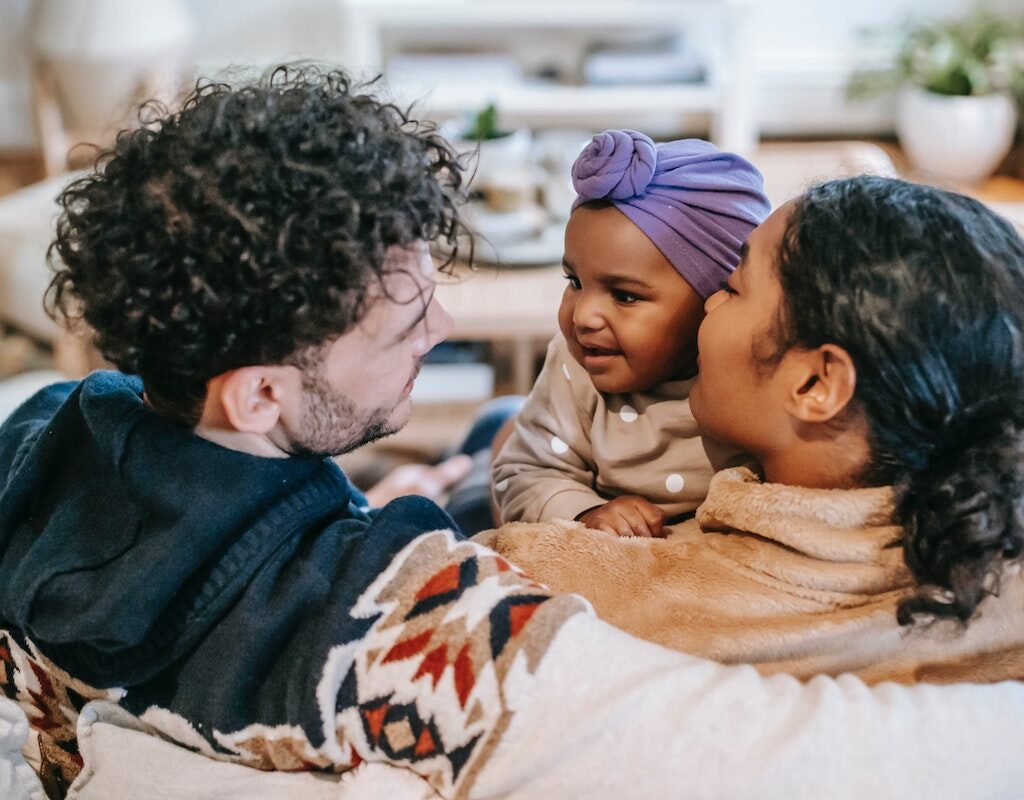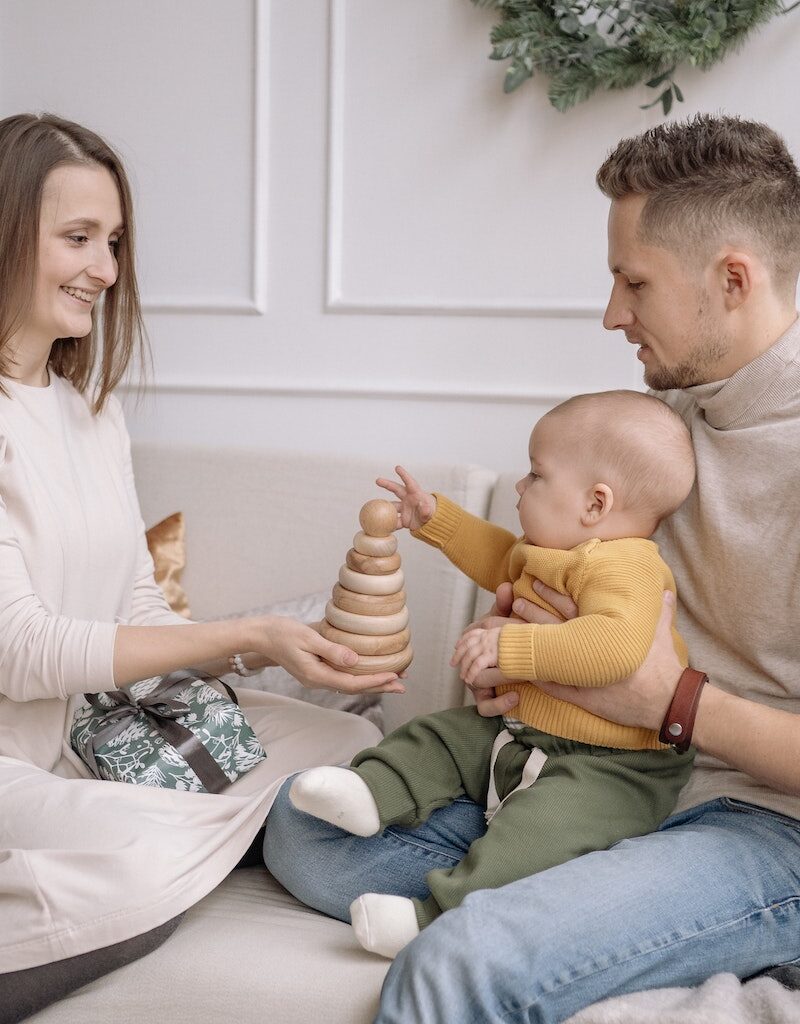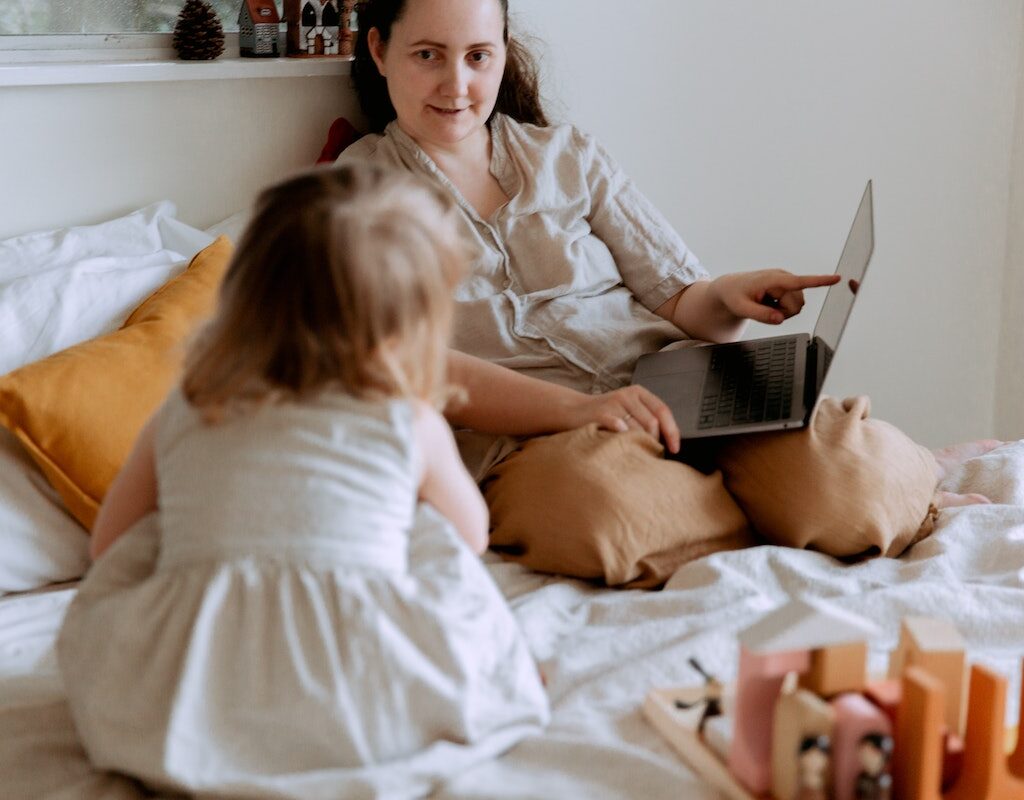When do babies start talking? This is a question that many parents have. The answer, of course, depends on the baby. If you are a parent, you know that one of the most exciting times in your life is when your baby starts to speak. However, knowing how to best help your child develop their speech can be difficult, especially if you are not sure what is considered normal. In this blog post, we will discuss speech development in babies and give you tips on how to help them along the way!

By the end of 3 months
Around three months, your baby will start to show more social and emotional expressions. For example, they may smile or coo when spoken to or quiet down and smile when you come into view. These are all signs that your baby is beginning to recognize your voice and respond positively to you.
At this age, babies also seem more interested in the world around them and may start to follow moving objects with their eyes. These are important milestones in your baby’s social and emotional development.
By the end of 6 months
By the end of six months, your baby will be gurgling and cooing up a storm! These gurgling sounds are the first step towards actual speech, as your baby is beginning to figure out how to make various sounds using their voice.

At this stage, your baby will also start to babble and create a variety of other sounds to express pleasure, boredom, or displeasure and also moves eyes in the direction of sounds.
They also notice that some toys make sounds and start paying attention to the music; while they may not be saying actual words yet, you’ll be amazed at how expressive your little one can be!
By the end of 12 months
By the end of 12 months, babies imitate speech sounds they hear and attach meaning to them. For example, they may learn that the sound “dada” refers to their father. Babies also start combining words together, such as “mama” and “uh-oh.”
As their communication skills improve, they begin to use gestures and body language to express themselves. For instance, they may turn and look when they hear their name called and Understand simple instructions, such as “Come here”.
By the end of 18 months
By the end of 18 months, your child should be able to recognize the names of familiar people, objects, and body parts. They should also be able to follow simple directions. If your child is not yet able to do these things, don’t worry. Every child develops at his or her own pace. Talk to your doctor or a qualified early childhood professional if you have concerns about your child’s development.

By the end of 24 months
By the end of 24 months, they start using simple phrases and answer one- to two-word questions. Try to follow simple commands such as “Give me the ball” and also say 50 or more words. By this age, they speak well enough to be understood by you.
There is no need to be concerned if your child is not talking as much as you think they should be. Instead, give them plenty of opportunities to practice, and soon enough, they will be chatting away!
Tips
If you’re concerned about your child’s speech development, you can do a few things to help.
One of the best things you can do is to talk to your child frequently. This will give them opportunities to practise their communication skills.
- You can also encourage your child to play with toys that make sounds, such as musical instruments or remote control cars.

- Singing songs and nursery rhymes together is also a great way to help your child’s speech development, allowing them to learn new words and sounds.
- Please describe what you are doing as you go about your day, point out objects around you, and tell them stories.
- You can also read aloud to them regularly, which will help them learn new words.
- Additionally, giving your child plenty of opportunities to practice using their voice is helpful.
- Finally, if you’re still concerned, consider making an appointment with a speech therapist. They will be able to give you specific advice on how to help your child’s speech development.
Following these tips can help your child develop their speech at their own pace. Just remember to be patient and have fun along the way!
Thanks for reading😊

